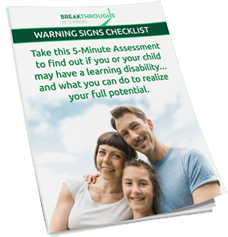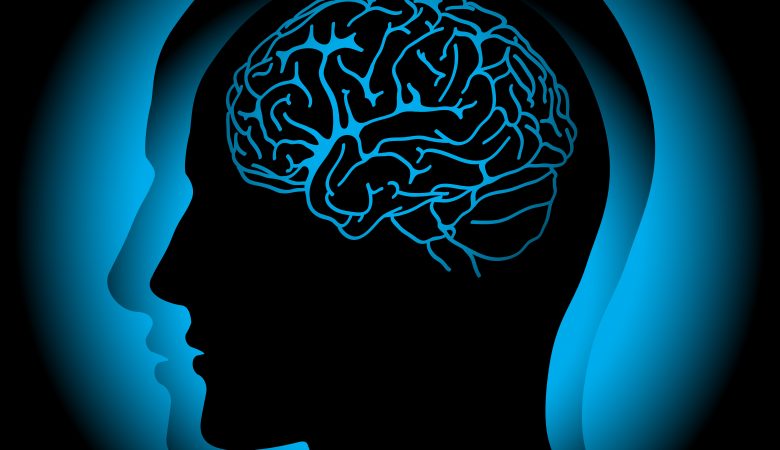
Does it affect life at home, at school or at work?
Take 5 minutes to complete the Warning Signs Checklist and discover whether you or your child could have learning difficulties that are impacting your life, and what to do about it.
Take The Free Warning Signs Checklist!
If your child sustains a concussion during play or competitive sports, recovery time typically requires one to three weeks. During this recovery time, the brain is not functioning at full capacity, even if your child appears to be doing just fine. This can impact how your child tolerates life developments and her education. Knowing the signs and symptoms of concussions is critical.
After a concussion, parents, teachers, and medical personnel must collaborate to not only ensure an uneventful recovery but also pace learning at a speed appropriate for the brain’s recovery. This is important as pushing too hard too early will frustrate the child and possibly cause long term effects to learning ability.
Impacts to Learning
An impact to the brain disrupts processes on a cellular level. Injured, and also trying to recover from the injury, brain cells become less efficient as they fight to reestablish balance. During this time, a child may experience dizziness, headaches, and memory and attention difficulties. She may also appear irritable and frustrated.
As a result, this is not the best situation for attending school and learning. If a child is thrust back into school immediately, work quality will suffer and learning may just not occur. Your child’s frustration will also increase as she will know she cannot keep up and that will associate extreme negativity to school and learning.
Returning to learning
Due to all the disruptions post-concussion, doctors usually recommend several days of rest during which there is no reading, no computer work, or any other work making demands of brain power. Children can also become physically fatigued very easily after concussion, so a few days at home merely resting is often the recommended treatment.
After rest, children will be introduced to short lessons normally in ten or 20 minute increments. If there is difficulty maintaining concentration for ten minutes, the child is often prescribed more rest. When the ten minutes becomes attainable that is then increased to 20 minutes, then eventually to 30 minutes. At 30 minutes, children are often considered ready to return to school for partial or full days.
While this gives a general idea of how return to learning timetables are developed, there is no general standard that applies to all concussion recoveries. These plans are customized so parents, doctors, and teachers must work together to correctly assess a child’s abilities. No two children will recover from a concussion the same way so observation and adaptable learning plans are key components to concussion recovery.
Long term effects?
Very few concussions require more than four weeks recovery time. Recovery periods over four weeks require more integrated academic and medical intervention and resources outside the school—academic accommodation instead of simply academic adjustments. Unless the accident was very serious, your child is unlikely to fall in this category.
Also, unless the accident was very serious, the concussion is unlikely to have long term results. After a full recovery, children basically return to normal. The one long term impact that does result is that after one concussion, sustaining a concussion becomes easier as the brain is more sensitive to impact. A lighter blow than the first blow can cause a more serious concussion due to this sensitivity. Taking precautions such as using helmets and learning proper technique in high-contact sports to avoid serious injury will become more crucial.
These injuries are not limited to rough contact sports. 60% of college soccer players and 10% of all high school athletes have suffered concussions. Currently there is a large body of research studies looking at the effect of sub-concussive events. These are much harder to detect as there are few symptoms and are often re-occurring in sports because they are often not recognised. Their total effect can be even larger than a concussion.
Concussions are a brain injury requiring immediate attention. Most injuries only affect learning for the short term. However, following medical recovery and learning plans based on your child’s stage of recovery will help ensure the concussion is merely a temporary inconvenience.
Subscribe to our newsletter and receive regular articles and resources to help you or your child perform better at school, home or work.
suscribe now
Post Your Comment Below